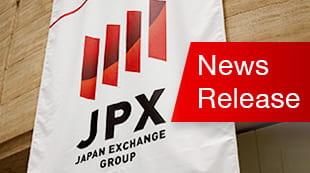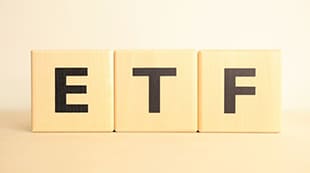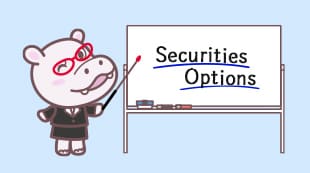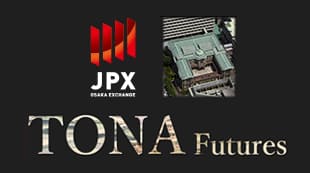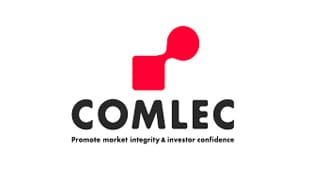Search results 311-320 / 10648
- sort:
- relevance
- latest

Outline | Maintaining Trading Participant Quality | Japan Exchange Group Trading Participant Admission Inspection of Trading Participants Disciplinary Actions Compliance Support Cooperation with Other Regulators Trading Participant Admission Inspection of Trading Participants Disciplinary Actions Compliance Support Cooperation with Other Regulators Trading participants act as intermediaries for investors to place orders to the exchange and they serve a vital role in maintaining confidence in the exchange market through their securities operations. In accordance with exchange rules, Japan Exchange Regulation (JPX-R) and Tokyo Commodity Exchange, Inc. (TOCOM) conduct the following operations in relation to trading participants: Examining eligibility for admission as trading participant Inspection of trading participant compliance with laws and regulations Issuing warnings and deciding disciplinary actions as needed In consideration of the importance of maintaining high standards in the exchange market, trading participants are expected to contribute to fair price formation and ensure smooth trading. JPX-R and TOCOM conduct the ...

JPX-R's Consideration for Disciplinary Actions | Japan Exchange Group Points of Consideration when Deciding Disciplinary Actions JPX-R's Consideration for Disciplinary Actions TOCOM’s Considerations for Sanctions In order to sustain consistency and uniformity in the application of disciplinary actions, Japan Exchange Regulation (JPX-R) has officially announced "Points of Consideration in Deciding Disciplinary Actions" Degree of Intent and Negligence of Individuals Involved in the Violation Range of Individuals Involved in the Violation Background of the Violation Whether the Trading Participant had Previously been Disciplined for a Similar Case Whether the Trading Participant had been Cautioned and Whether Other Trading Participants, etc., had been Disciplined for a Similar Case Impact of Violation on the Exchange Market Whether the Violation Undermines Confidence in the Exchanges or Other Trading Participants Relation to Violations of Laws and Regulations, etc. Treatment of Multiple Violations Duration, Frequency, and Scale of the Violation, and ...

Current Inspections and Inspection Results | Japan Exchange Group Recent Inspections Deficiencies Found Responses to Inquiries Other Activities Recent Inspections Deficiencies Found Responses to Inquiries Other Activities The following chart lists the number of companies that were sent inspection results in FY2024. Type of Inspection Description Number of Companies General Inspection Inspections that are carried out in the order of their priority, taking into consideration the results of previous inspections, the results of regulatory inspections, and the time since the previous inspection. 24 (Number of joint inspections) Inspections carried out together with the Japan Securities Dealers Association (JSDA). (21) (Number of joint inspections) Inspections carried out in collaboration with other exchanges. (7) Follow-Up Inspection A subsequent inspection held to confirm the status of improvement. The inspection, if necessary, is conducted within about a year after a trading participant is requested to submit an improvement report regarding any deficiencies found by ...

Outline | Outline of Self-Regulatory Operations | Japan Exchange Group Legal Foundations Specific Self-Regulatory Operations Outline Exchanges' "Quality Control Center" Organizational Structure that Ensures Neutrality and Effectiveness Emphasis on Dialogue with Market Players Support to Prevent Violations of Laws and Regulations Self-regulatory operations in Japan are defined under the Financial Instruments and Exchange Act (FIEA). Article 84, Paragraph 1 of FIEA prescribes an exchange "shall properly conduct the Self-Regulation Related Services… in order to ensure fair sales and purchase of Securities and Market Transactions of Derivatives… as well as to protect investors." and provides a summary of self-regulatory operations in Paragraph 2 of the same article and Cabinet Office Ordinances as follows. (Article 84, Paragraph 2 of FIEA) Business related to the listing and delisting of financial instruments, financial indexes or options Investigation of member/trading participant compliance with laws, exchange rules or just and equitable principles ...

Necessity of Self-Regulatory Operations | Japan Exchange Group Self-regulation by Financial Instruments Exchanges Merits of Self-regulation by Financial Instruments Exchanges Japan Exchange Regulation (JPX-R) conducts self-regulatory operations based on entrustment from Tokyo Stock Exchange and Osaka Exchange. This arrangement ensures independent and effective self-regulation that is vital for financial instruments exchanges. Self-regulation generally refers to persons or organizations in the same industry forming a private sector body to establish a set of rules for the purpose of facilitating business and maintaining discipline. While the nature of self-regulation means that it can exist both within and outside the provisions of laws, in Japan, the Financial Instruments and Exchange Act defines self-regulation as an obligation to be fulfilled by financial instruments exchanges due to their role and mission in ensuring fair trading in the markets and protecting investors. The key merits of self-regulation ...

Educational Activities for Preventing Unfair Trading | Japan Exchange Group Introduction to COMLEC COMLEC Policy Internal Training Materials Educational Activities for Preventing Unfair Trading Other Activities Introduction to COMLEC COMLEC Policy Internal Training Materials Japan Exchange Regulation (JPX-R) established COMLEC (Compliance Learning Center) to promote support for compliance activities by listed companies and trading participants. COMLEC endeavors to ensure fairness in the market by providing investors and other market users with opportunities for obtaining knowledge about laws and regulations concerning securities trading. COMLEC provides various learning and training services concerning compliance based on expertise thanks to JPX-R's proximity to the market. The policy of COMLEC is as follows: COMLEC provides high quality learning and training contents with practical applications. COMLEC explains the contents of the latest laws and regulations as well as various related rules in an easily understandable manner. COMLEC provides learning and training tools tailored to ...

Insider Trading | Japan Exchange Group Insider Trading Monitoring of Insider Trading Prevention of Insider Trading Insider Trading FAQs Agreements and Plans Made Before Knowledge of Material Fact Insider Trading Monitoring of Insider Trading Prevention of Insider Trading Insider Trading FAQs Agreements and Plans Made Before Knowledge of Material Fact Insider trading is an attempt by someone who has access to unpublished corporate information that could significantly affect investment decisions through his or her duties or position, such as a company insider, to gain profit for themselves by buying or selling a company's shares or other related issues using said information. Since ordinary investors who are not informed of such information are then trading at a disadvantage, and the credibility of the securities market may be damaged, such trading is prohibited under the Financial Instruments and Exchange Act, and violators are subject to criminal prosecution or recommendation for an administrative ...

Market Manipulation | Japan Exchange Group Market Manipulation Monitoring of Market Manipulation Transactions that Could Lead to Unfair Trading FAQ on Market Manipulation Guidelines on Prevention of Unfair Trading Market Manipulation Monitoring of Market Manipulation Transactions that Could Lead to Unfair Trading FAQ on Market Manipulation Guidelines on Prevention of Unfair Trading Market manipulation is the act of consciously and artificially causing price changes in the market, misleading others by making it look like those prices are formed by natural supply and demand, and taking advantage of such market fluctuations for one's own benefit. Such activities hinder fair price formation and cause unexpected losses for investors, and are therefore prohibited under the Financial Instruments and Exchange Act. Violators are subject to criminal prosecution or recommendation for an administrative monetary penalty payment order by the Securities and Exchange Surveillance Commission. Examples of Market Manipulation False transactions and collusive transactions (Article 159, ...

Status of Market Surveillance Activities | Japan Exchange Group Market surveillance is divided into two levels: the "investigation" level, which sifts out potential problems, and the "examination" level, which conducts a detailed analysis of those cases determined to have potential problems as a result of the investigation. It is conducted from the perspectives of insider trading, market manipulation, derivatives, and other improper acts. A breakdown of the number of investigations and examinations in FY2022 (April 2022 - March 2023) based on these classifications is as follows. (Note) ・The number of investigations and examinations is the number of those counted at the end of the investigation or examination. The number of cases reviewed is counted as the number of cases reviewed and not as the number of cases investigated....

Examination of Trades (Trade Practice Examination) at TOCOM | Japan Exchange Group Examination of Trades (Trade Practice Examination) Unfair Trading under Commodity Derivatives Act Examples of Trade Practices which Might Trigger Action by TOCOM Perspectives of Trade Practice Surveillance Specific Examples of Action Taken In order to secure the fairness of the market transactions and the reliability of the market, the Exchange monitors all transactions (placement, cancellation, correction, and execution of orders) carried out in the markets of the Exchange, and investigates the status of transactions and price trends to detect unfair trade practice, including market manipulation. If there is a need to confirm the details of a transaction or any doubt about a transaction as a result of the investigation, the Exchange will conduct a fact-finding inquiry with the Members concerned. If the transaction in question is determined, through such investigation and/or inquiry, to be an instance of ...

